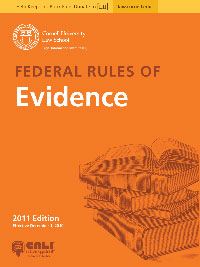 I’m a little behind on this, but in September of this year, the AOC announced revisions to the Federal Rules of Evidence in the form of “re-styling.” The Judicial Conference Advisory Committee on Evidence Rules explains:
I’m a little behind on this, but in September of this year, the AOC announced revisions to the Federal Rules of Evidence in the form of “re-styling.” The Judicial Conference Advisory Committee on Evidence Rules explains:
“The revision is intended to make the Evidence Rules easier to read, and to clarify, simplify, and modernize them without altering their substantive meaning,” said Judge Robert L. Hinkle (N. D. Fla). “There will be no change at all in the meaning or application of any rule. A judge or lawyer would get the right result using either a restyled rule or the old version. However, we think the chance of misunderstanding the rule is much smaller using the restyled version.”
The process began in 2007, and was released for the 2012 version of the FRE. As part of the effort, “Term usage was standardized, and the use of ambiguous words, such as “shall,” minimized along with outdated or archaic terms, intensifiers, and redundant terms and cross references. Rule numbers and citations were preserved to minimize the effects on research, but subdivisions were rearranged in some rules for greater clarity and simplicity. But terms were retained that have acquired special status from years of case law interpretation.”
 A federal judge approved a joint request by mobile telecoms AT&T and T-Mobile to put their $39 billion merger litigation with the U.S. Department of Justice Antitrust Division on hold.
A federal judge approved a joint request by mobile telecoms AT&T and T-Mobile to put their $39 billion merger litigation with the U.S. Department of Justice Antitrust Division on hold.
 I’m a little behind on this, but in September of this year, the AOC
I’m a little behind on this, but in September of this year, the AOC  A juror who tweeted during a murder trial, and while he and his fellow jurors deliberated, led the Arkansas Supreme Court to reverse the conviction of a 26-year-old death row inmate.
A juror who tweeted during a murder trial, and while he and his fellow jurors deliberated, led the Arkansas Supreme Court to reverse the conviction of a 26-year-old death row inmate.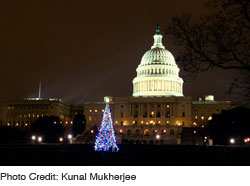 From the
From the 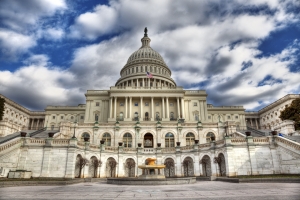 Facebook is hacking Congress. But don’t be alarmed.
Facebook is hacking Congress. But don’t be alarmed.
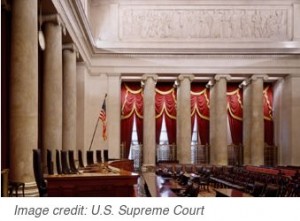
 A Brooklyn jury acquitted a man accused of gun possession charges after his criminal defense lawyers discovered a treasure trove of derogatory, racist digital evidence on a Facebook group created by NYPD officers.
A Brooklyn jury acquitted a man accused of gun possession charges after his criminal defense lawyers discovered a treasure trove of derogatory, racist digital evidence on a Facebook group created by NYPD officers.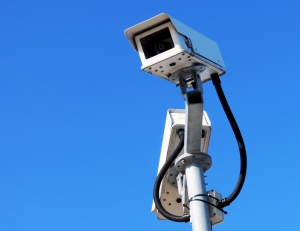 Carrier IQ, a mobile phone software and data analytics company that gives telecoms business intelligence on connections, dropped calls and user behavior was hit with at least eleven consumer
Carrier IQ, a mobile phone software and data analytics company that gives telecoms business intelligence on connections, dropped calls and user behavior was hit with at least eleven consumer  Last week a New York trial judge denied a defense discovery request for a personal injury plaintiff’s current and historical Facebook, MySpace, and Twitter account information.
Last week a New York trial judge denied a defense discovery request for a personal injury plaintiff’s current and historical Facebook, MySpace, and Twitter account information.